archive
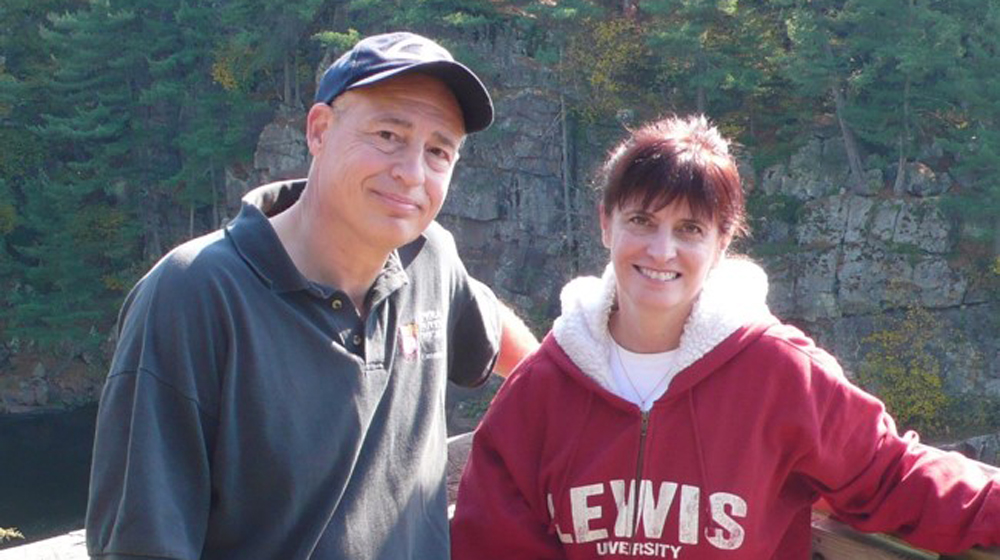
"Civil War Chicago: Eyewitness to History" on October 20th
Professor of History Theodore J. Karamanski, PhD and Loyola alumna Eileen M. McMahon, PhD, will discuss their new book on the Civil War’s transformative role in Chicago's development.
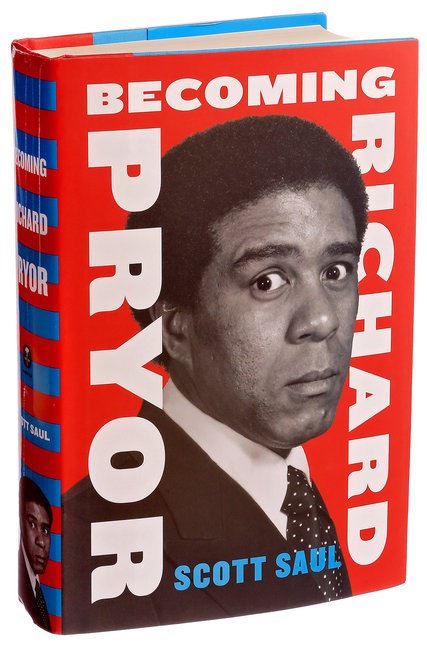
Richard Pryor Biographer to Speak at Loyola
Scott Saul, the author of Becoming Richard Pryor, will give a public lecture on the comedian entitled "Living with Richard Pryor: A Biographer's Tale" on Friday, April 24 at 3 PM.
Timothy Gilfoyle on "The Changing Forms of History"
Should history be a book discipline? What constitutes "acceptable scholarship" in history? Professor Timothy Gilfoyle considers the rich and diverse forms that historical scholarship take from books, digital media, and public history projects in his article "The Changing Forms of History" in April's edition of Perspectives on History, the AHA newsmagazine.

"The Rise of the Nation-Saint" on November 5th
Prof. Kathleen Sprows Cummings, University of Notre Dame, discusses a pre-circulated paper on the efforts of U.S. Catholics to secure their first canonized saint for the third meeting of the 2015-2016 Ramonat Seminar Series.
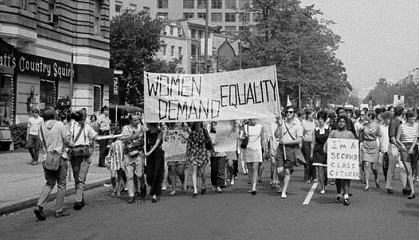
Voices of Chicago Women Activists
Celebrate Women's History Month with the Women & Leadership Archives and the Chicago Area Women's History Council. Come hear multimedia excerpts of oral histories by Columbia College honors students featuring Chicago women activists and leaders. The event will be held on Sunday, March 16th from 2:00pm-5:00pm on the 1st floor of Piper Hall.

What was Chrysler Village and how did it get its name?
Public History graduate students know and shared their work on a historic nomination for the neighborhood with Ask Geoffrey on WTTW the other night.
LEARN MORE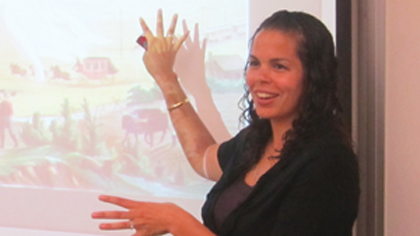
Closing the Gap
Sarah Doherty (PhD '12) reflects on the importance of the Preparing Future Faculty Program in equipping her, and other minority doctoral students, with the skills necessary for a career in academia.
LEARN MOREBA/MA Candidate Dylan LeBlanc on Puritans and Provost Fellowships
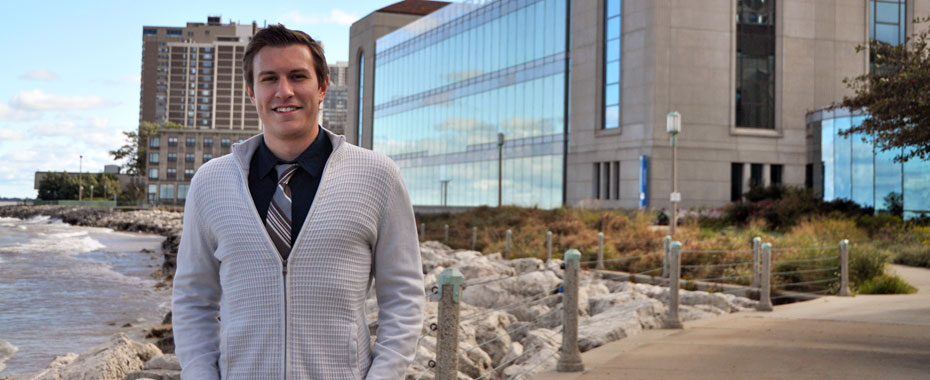
Public History graduate Annie Cullen recently caught up with History BA/MA candidate, Dylan LeBlanc, about receiving the Loyola University Chicago Provost Fellowship for the 2013 – 2014 academic year and his ongoing study of the Puritans.
Tell us about your scholarship.
My research falls under an almost laughably broad historiographical umbrella. I am generally interested in the “history of the self” and the rise of “modern individuality.” During my sophomore year, I began thinking about the uniqueness of American concepts of self and society, initially in terms of constitutional history and theory. I was interested in understanding the deep cultural tendencies and realities giving rise to individual rights of “life, liberty, and the pursuit of happiness,” “Manifest Destiny,” and how the American experience has differed in its consequences for individuality than that the rest of the world. It is often assumed, both academically and in popular culture that the modern individual was born in America. I wanted to identify how, where, and why that unique “American self” developed. This at least was my initial thought process and it inspired me to seek out an independent research fellowship.
My specific research has focused on Puritan self-fashioning in the 17th century English Atlantic as a focused way to consider the much larger issues mentioned above. I've been studying the ways in which particularly zealous and separatist members of the English Reformation, “the godly,” conceived of the self and individual identity within the context of a deep Christian faith and how these conceptions impacted community formation. In particular, my work hinges upon the writings of John Winthrop during his immigration to America in 1630 and his influence on the development of the Massachusetts Bay colony. Winthrop's ideal vision of a “city on a hill” in America, where true Christianity could flourish, entailed a strict standard of community authority and individual conformity and thus provides an interesting setting in which to study the self.
The product of this work so far has been a paper entitled “‘When God Intends a Man to Work:’ Seventeenth Century Puritan Self-Fashioning and the Atlantic Lineage of Modern Individuality" which I presented in the Spring of 2013 at the Chicago Area Undergraduate Research Symposium, the National Conference on Undergraduate Research, and Loyola's Undergraduate Research Symposium during the Weekend of Excellence.
What type of historical research have you undertaken in pursuing your project?
Most of my work has been concentrated on textual analysis and close readings of a variety of Puritan writings (diaries, sermons, etc.). Many of the primary sources I've be interested in have been readily available in published anthologies or edited versions (such as the massive diary of John Winthrop) but I have also spent considerable time at the Newberry Library diversifying my source base, I'll be flying to Boston in June to do work at the Massachusetts Historical Society. However, I've easily spent the most energy digesting the historiography of Puritan/early modern Atlantic studies and my revisions in the immediate future will be focused on increasing the number of primary sources which support and nuance my argument.
What’s it like to be one of Loyola’s Provost Fellows? Why might others want to be a Fellow?
One of the best things about the Provost Fellowship is its flexibility—it really can be a “choose your own adventure” sort of research experience based entirely upon the discretion of the student and faculty mentor. In this sense it has given me the best replication of Graduate Studies that I could have asked for as an undergraduate. You and your mentor craft a research plan that fits your specific needs and aspirations as a student.
What faculty have you worked with and how did they help you to give shape to your project?
In terms of faculty, I first approached Dr. Robert Bucholz with original, broad interests, having taken his Western Civilization course previously. He referred me to Dr. John Donoghue who was incredibly generous and receptive in his support for my vague and rambling ideas and became my primary advisor for the Provost Fellowship. Dr. Donoghue gave me access to two chapters from his forthcoming book ‘Fire Under the Ashes:’ An Atlantic History of the English Revolution, along with his bibliography, which allowed me to contextualize much of the research on Atlantic Puritanism which I was to conduct. His work will have a significant impact on the field and in my conversations with him I first began to understand just what it means to do “Atlantic history.”
During the Fall of 2012, I was able to take Dr. Kyle Roberts' honors research seminar and it was in this class that I developed the substance for the paper itself. With his help I was able to narrow my topic down to something manageable yet open enough to allow for further research. I could go on for pages about my mentors in the History Department (which I believe is the strongest department at this university...and it's not even close). I am supremely lucky to have the kind of support that I've found here. In many ways the connections I've made with faculty members like Drs. Donoghue, Roberts, and Bucholz have been the most beneficial aspect of the Provost Fellowship for me because it has introduced me to the rhythm of graduate studies and given me the opportunity to learn from great friendships.
What does the future hold in store for you? How have you benefitted from receiving the Provost Fellowship?
Applying to graduate school! I’ll be revising the paper I began under the Provost Fellowship to serve as my writing sample. My end goal is to follow in the footsteps of my mentors and eventually join a history faculty. I'm grateful and excited to have another Provost Fellowship for the coming academic year which should only allow me to continue growing and improving my scholarship. One thing I've learned is that no paper is ever finished and the work I've begun here will most likely form a considerable part of my graduate studies.
